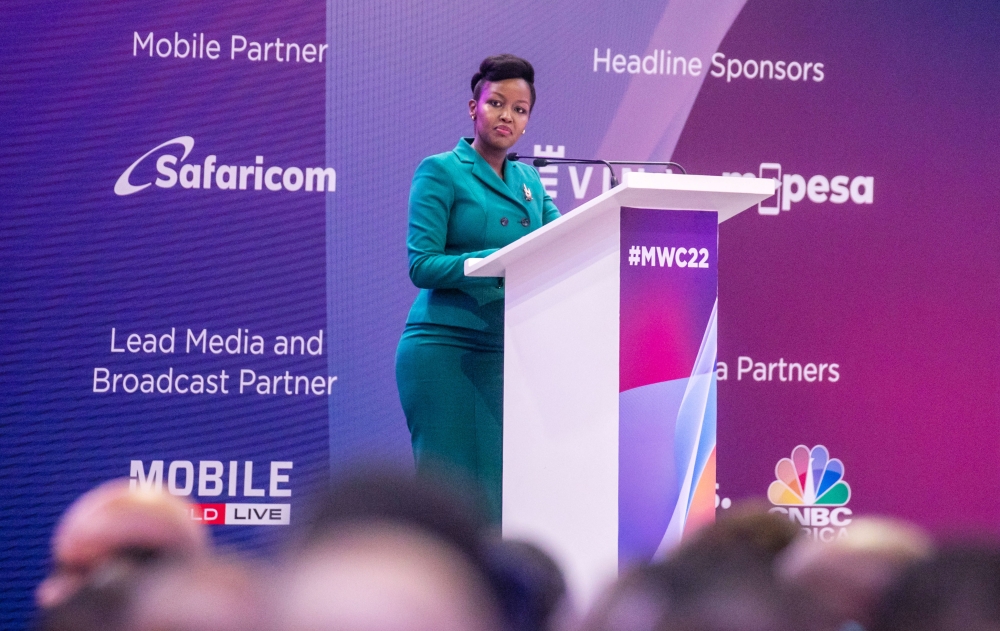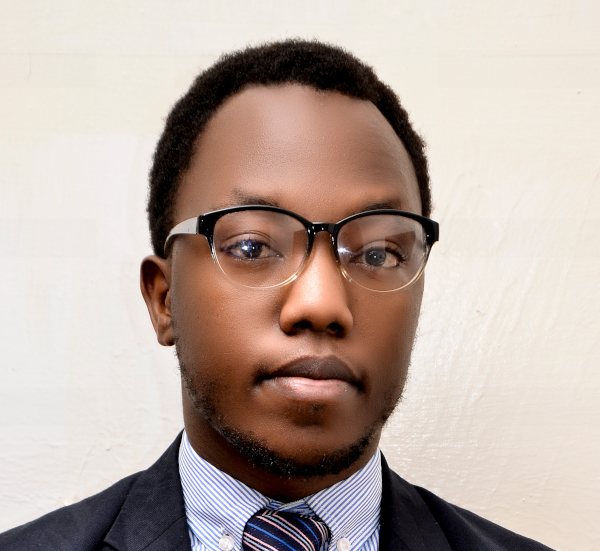

2022 was another productive year for Rwanda’s ICT sector. Different initiatives were rolled out, especially those specifically designed to strengthen the capabilities of local tech startups and help them to secure funding to scale up their innovative solutions.
The government revised policies and local innovators got recognised on the international level.
Alex Ntale, the CEO of Rwanda ICT Chamber, says compared to preceding years, 2022 brought about more action in regard to opening up markets for startups and innovators into the corporate world through the Hanga Corporation Innovation program during Hanga PitchFest.
He said that the investments that were made in startups came from both the private sector as well as the government.
"We saw the government making investments in all 45 startups that participated in Hanga PitchFest; at least between $5000 to $8000 were given to the startups that didn’t make it to the top five.
We also saw investments from the private sector, the Google for Startup Black Founders Fund, Katapult Africa Accelerator as well as Norrsken Fund which invested in a few Rwandan startups, PesaChoice and Fixa being some of them.
We also saw investments from foundations like Jasili that is preparing the pipeline,” he said.
"We think that a combination of all these have put us at a better standing as we begin 2023 to be able to deliver to the Rwandan ICT sector,” he continued, adding that he expects 2023 to be more productive as more ICT initiatives and conferences are scheduled to roll out.
As 2022 draws to an end, we look at some of the significant occurrences that shaped Rwanda’s Information Communication Technology sector.
A new broadband policy was rolled out
Recently, the government released a new broadband policy that will, among others, facilitate the adoption of the 5G network in driving a digital economy.
It also proposes a redefinition of the market structure, moving from a service-based competition to a global deployment of networks and advanced services, ICT and Innovation Minister, Paula Ingabire said during GSMA’s Mobile World Congress.
She noted that it continues to focus on five important progressive pillars that include securing and optimizing broadband infrastructure resources management, inclusive access to high-quality, trusted, and competitive broadband services as well as sustainable and meaningful broadband connectivity driving broadband adoption. Other pillars include digital skills for all and also national climate resilience promotion.
Top five tech innovators got $110,000 prize money
The second edition of this annual festival was concluded on December 10. It saw young innovator, Peace Ndoli emerge as the overall winner after her solution, Lifesten Health which promotes health through incentives-based health and wellness programs to help people adopt health behaviours and lifestyle, convinced the jury to be the best.
Hanga PitchFest aims to provide a platform to showcase tech-entrepreneurs and creative talent from all over the country
The second best award ($20,000) was given to PayingTone, while the third ($15,000) went to School Nest. Mulika Farms and Huuza Quest emerged as the fourth and the fifth, respectively and secured $12,500 each. More.
Airtel Money, MoMo services were integrated through eKash
On May 26, Airtel Money and Mobile Money Rwanda Limited customers started transacting with each other seamlessly with their respective wallets, at no additional cost.
This followed the launch of a platform dubbed eKash which aims to facilitate interoperability between the two mobile operators. The new platform was made possible through the integration of both institutions’ platforms under the Rwanda National Digital Payment System Blueprint (RNDPS).
To start using the service required each customer to accept the terms and conditions of their respective Mobile Money Operator by dialling *182*11 and following the instructions. To send money to another mobile network operator, the user dial *182*1*2# and follow the prompts.
Rwanda Coding Academy graduated its first cohort
Nyabihu-based Rwanda Coding Academy, which started in 2019, graduated its first cohort of 58 students.
Having completed a three-year curriculum of programming, the students at the academy in Nyabihu have raised hopes that the country can have locally trained engineers, who will work in government institutions and the private sector.
Some of the software programs developed by the first cohort are already used by different government institutions.
One of the graduates Vérité Mugabo Makuza, 19, was offered USD1 million from a firm based in San Francisco, USA, for developing Kobra, a visual programming tool designed to make machine learning (ML) easy to learn and experiment with.
Six Rwandan startups got $100,000 Google funding
BAG Innovation, Bailport, Exuus, Kapsule, Pesa Choice, and Pindo are the six Rwanda startup companies that were selected to receive up to $100,000 (approx. Rwf100 million) as part of Google for Startup Black Founders Fund, a funding initiative for African tech companies.
Announced on September 6, some 60 selected African startups will receive non-dilutive awards of between $50 000 and $100 000 and up to $200 000 in Google Cloud credit per startup, according to a Google statement.
The startups will also receive hands-on business and technical mentorship from Google’s network of mentors and facilitators, learning the best practices on a range of topics from artificial intelligence, organisational culture, people management, to growth strategies, among others.
Katapult Africa Accelerator program came to Kigali
On November 4, Katapult, a global investment company focusing on early stage impact driven technology start-ups, launched its world-class Katapult Africa Accelerator in Kigali in partnership with Norad, Tony Blair Institute for Global Change, Norrsken, and Smart Africa.
Nine outstanding impact technology startups in the food-, agri- and climate-tech space were selected to participate in the program.
The Katapult Africa Accelerator Program is a ground-breaking program that combines 90 days of intense digital and physical workshops, network and learning sessions with $150,000 equity investments in each selected startup.
Katapult’s partners and lead investors in the Katapult Africa Seed Fund include Rwanda Social Security Board, Norfund and SOS Children’s Villages. The opening ceremony also provided an opportunity for the nine selected startups to engage widely in the Rwandan ecosystem and beyond.
Rwanda was re-elected to ITU
Rwanda will serve on the Council again from 2023-2026. Speaking to local media after Rwanda’s re-election, the Minister for ICT and Innovation, Paula Ingabire declared that Rwanda’s contribution to global technology advancement and what Rwanda has achieved since the previous elections in 2018 in Dubai, partly contributed to the current re-election.
Canal Group acquired Rwandan studio, Zacu Entertainment
In July, CANAL Group announced the acquisition of ZACU Entertainment, a major player in the production and distribution of content in Rwanda.
This acquisition allowed CANAL Group to significantly strengthen its audiovisual activities in Rwanda by benefiting from a large content offer of more than 500 hours of new films and TV series produced per year and a catalog of 700 hours, all in Kinyarwanda.
According to Alex Ntale, this is the biggest deal in Rwanda’s startup ecosystem in 2022 considering the impact Zacu Entertainment has in the Rwandan cinema industry and the number of people it supports. More on what it means.
Rwanda started being remapped through Google Street View
In October, Rwanda became the eleventh country to be remapped through Google’s new feature Street View which doesn’t only show street addresses but also gives images of a place.
It also aims at making Google maps more effective and user-friendly by adding nearly 300,000 images enabling people to virtually explore and navigate destinations.
The Ministry of ICT and Innovation revealed that Google was collecting Street Views across Kigali. The scope includes coverage of the entire city, where permissible, and plans to continue beyond Kigali, plans are still to be confirmed.
Local software firm, RwBuild secured Rwf4bn
This December, a local software firm, Rwanda Build Program (RWBuild) that designed 912Rwanda, an electronic platform that uses data to improve pre-hospital transport of injured people secured £3 million (approximately Rwf4bn) funding from the UK’s National Institute for Health and Care Research (NIHR).
The NIHR, through its Research and Innovation for Global Health Transformation (RIGHT) programme, aims to fund high-quality, timely research.
RWBuild’s software is an innovative electronic communications platform that regularly collects information from hospitals on the availability of staff and equipment, and from the ambulance crew on patient status. The system then uses this information to match the patient with the nearest hospital that can accept them.


